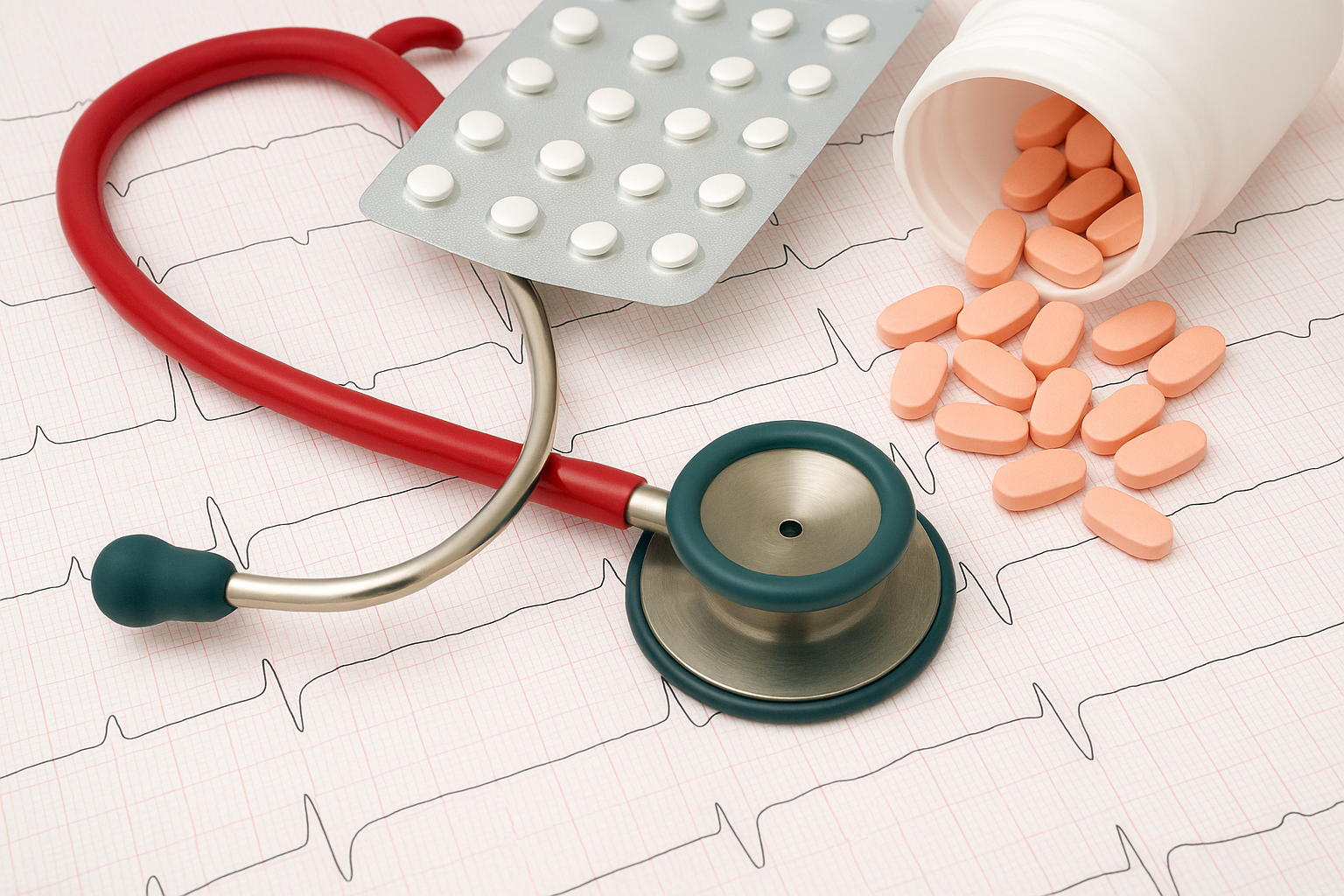High Blood Pressure: Doctors Curb Pharmaceutical Industry
Doctors raise threshold for blood pressure medications – over one million Swiss can now avoid treatment

Key findings of the article:
- European societies raise treatment threshold to 140/90 mmHg (150 mmHg for those over 80)
- Mild hypertension (140-159/90-99 mmHg) is probably treated unnecessarily with medications
- Cochrane study shows: Benefits of medications for mild hypertension not proven
- Pharmaceutical industry has massive financial influence on treatment guidelines
Good news for many patients with elevated blood pressure: The European Societies for Hypertension (ESH) and Cardiology (ESC) are taking a step back and now generally recommend drug treatments only when blood pressure values regularly exceed 140/90 millimeters of mercury (mmHg) in resting positions.
For those over 80, the threshold is even higher at 150 mmHg. This was decided by a 24-member expert panel at the ESH annual meeting in Milan. Previously, the recommendation was to push the value below 130 mmHg (upper value).
Independent Cochrane Study Questions Treatment
Even mild high blood pressure with values between 140 and 159 mmHg (upper value) and/or 90-99 mmHg (lower value) is probably treated unnecessarily with medications. The harm from side effects is likely greater than the benefit in this mild hypertension.
This conclusion came from a study commissioned by the independent Cochrane organization. The analysis was conducted by Diana Diao from the University of British Columbia in Vancouver and her colleagues. The Cochrane organization evaluates scientific studies and publishes results in their online database. The participating scientists receive no money from pharmaceutical companies.
Cochrane study results:
- Study scope: 4 studies with a total of 9,000 patients with mild hypertension
- Treatment duration: 4 to 5 years with various blood pressure-lowering medications
- Result: No statistically significant difference in heart attacks, strokes, or deaths
- Side effects: Almost every tenth patient discontinued treatment due to side effects
“We don’t know if the benefits of treatment outweigh the harm”
Diana Diao, Cochrane researcher
Jerome Hoffman, emeritus professor of medicine at the University of California in Los Angeles, was more direct: Treating mild high blood pressure with medications could primarily be of great benefit to the pill manufacturer. “But it was almost predictable that this therapy would have no or only minor value for patients.”
How Treatment Thresholds Changed
In the late 1980s, blood pressure values were only considered requiring treatment from 160/100 onwards. However, guidelines from the Swiss Hypertension Society, whose secretariat was operated by Roche, have recommended medications from values of 140/90 since the 1990s.
This more than doubled the number of “sick” people overnight. The industry generates billions in revenue with blood pressure medications.
Pharmaceutical companies could not have dreamed of a better advertising spot than the bold headline from Blick newspaper: “High Blood Pressure: 1 Million Swiss in Danger”. The “unaware” would “urgently” need medications. Even “small deviations” from ideal blood pressure were “harmful”.
Such media campaigns and the pharmaceutical industry’s influence on medical bodies led to the extremely low threshold of 130 mmHg that remains in effect today. People with higher values were already considered in need of treatment and became customers of the pharmaceutical industry.
Financial Influence of the Pharmaceutical Industry
When the American Society for Hypertension began establishing additional risk factors and reasons for medication intake, pharmaceutical companies Novartis, Merck, and Sankyo had paid the medical professional society $75,000. The three companies easily provided another $700,000 to make the new criteria known to doctors.
The New York Times reported this in 2006 and demanded that pharmaceutical companies should keep their hands off defining new diseases. Novartis spokesman Satoshi J. Sugimoto confirmed the payments but saw “no conflict of interest”.
No wonder the major pharmaceutical companies achieve growing billion-dollar revenues with medications for high blood pressure. Their commercial interest in the lowest possible threshold values is evident.
“Sales teams must convey exactly the same messages as a television commercial”
Thomas Ebeling, former Novartis CEO
For pharmaceutical companies, revenue and market share are paramount. They spend 30 to 35 percent of their billion-dollar revenues on marketing – while 13 percent is sufficient for research and development, explained former Novartis CEO Thomas Ebeling to the NZZ.
Risk Factors You Can Influence Yourself
Several factors contribute to high blood pressure. The more risk factors you eliminate, the more you can lower your blood pressure without medications. Without medications, you risk no long-term serious side effects.
Modifiable risk factors:
- Lack of exercise: Regular physical activity
- Overweight: Weight reduction
- Smoking: Complete cessation
- Lipid metabolism disorders: e.g., elevated cholesterol levels
- Diabetes: Blood sugar control
- Chronic kidney diseases: Treatment of underlying condition
- Alcohol consumption: Moderation or abstinence
- Salt consumption: Reduction, especially in processed foods
- Chronic stress: Stress management
- Certain medications: e.g., rheumatism drugs, birth control pills
Current Blood Pressure Definitions
Current classification:
- Mild hypertension: 140-159/90-99 mmHg
- Moderately elevated blood pressure: 160-179/100-109 mmHg
- Severe hypertension: ≥ 180/110 mmHg
Treatment recommendation: Moderately and severely elevated blood pressure can be treated with great benefit using medications.
Conclusion: Return to Evidence-Based Medicine
The raising of treatment thresholds by European professional societies is an important step back toward evidence-based medicine. Millions of patients with mild hypertension can now avoid medications and focus on lifestyle changes instead.
This case exemplarily shows how commercial interests of the pharmaceutical industry can influence medical guidelines. Independent research like Cochrane studies is therefore crucial for patient-oriented medicine.
The revelation that pharmaceutical companies spent hundreds of thousands of dollars to influence treatment guidelines while spending far more on marketing than research raises serious questions about the integrity of medical decision-making processes.
This article is based on the original Infosperber report and highlights the importance of evidence-based medicine in blood pressure treatments. It serves for information purposes and does not replace individual medical consultation.
Original source: Infosperber – “Doctors raise threshold for blood pressure medications”